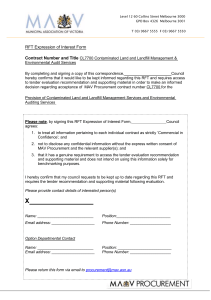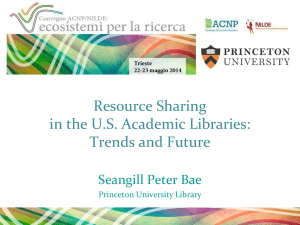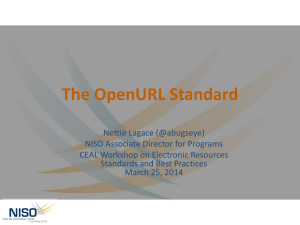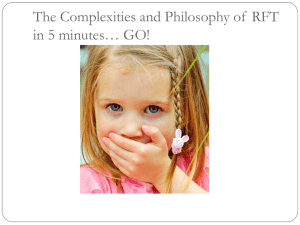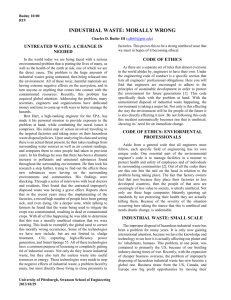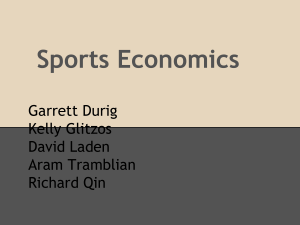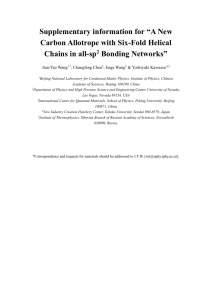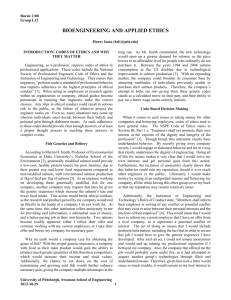POLS 3408-02 Hamada
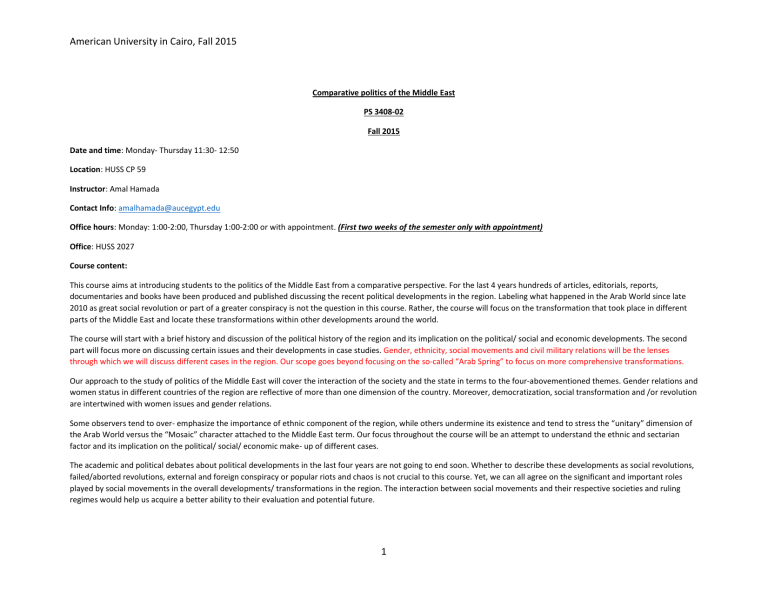
American University in Cairo, Fall 2015
Comparative politics of the Middle East
PS 3408-02
Fall 2015
Date and time: Monday- Thursday 11:30- 12:50
Location: HUSS CP 59
Instructor: Amal Hamada
Contact Info: amalhamada@aucegypt.edu
Office hours: Monday: 1:00-2:00, Thursday 1:00-2:00 or with appointment. (First two weeks of the semester only with appointment)
Office: HUSS 2027
Course content:
This course aims at introducing students to the politics of the Middle East from a comparative perspective. For the last 4 years hundreds of articles, editorials, reports, documentaries and books have been produced and published discussing the recent political developments in the region. Labeling what happened in the Arab World since late
2010 as great social revolution or part of a greater conspiracy is not the question in this course. Rather, the course will focus on the transformation that took place in different parts of the Middle East and locate these transformations within other developments around the world.
The course will start with a brief history and discussion of the political history of the region and its implication on the political/ social and economic developments. The second part will focus more on discussing certain issues and their developments in case studies. Gender, ethnicity, social movements and civil military relations will be the lenses through which we will discuss different cases in the region. Our scope goes beyond focusing on the so-called “Arab Spring” to focus on more comprehensive transformations.
Our approach to the study of politics of the Middle East will cover the interaction of the society and the state in terms to the four-abovementioned themes. Gender relations and women status in different countries of the region are reflective of more than one dimension of the country. Moreover, democratization, social transformation and /or revolution are intertwined with women issues and gender relations.
Some observers tend to over- emphasize the importance of ethnic component of the region, while others undermine its existence and tend to stress the “unitary” dimension of the Arab World versus the “Mosaic” character attached to the Middle East term. Our focus throughout the course will be an attempt to understand the ethnic and sectarian factor and its implication on the political/ social/ economic make- up of different cases.
The academic and political debates about political developments in the last four years are not going to end soon. Whether to describe these developments as social revolutions, failed/aborted revolutions, external and foreign conspiracy or popular riots and chaos is not crucial to this course. Yet, we can all agree on the significant and important roles played by social movements in the overall developments/ transformations in the region. The interaction between social movements and their respective societies and ruling regimes would help us acquire a better ability to their evaluation and potential future.
1
American University in Cairo, Fall 2015
Literature on democratization has always emphasized the importance of regulating civil- military relations. Democratic systems are characterized by less political roles played by the military, thus the recent developments in countries like Egypt, in the aftermath of 2013, have triggered many questions about the future of democracy in Egypt and elsewhere. This part of the course will discuss aspects of the civil military relations and aims at understanding their relationship to democratization.
It is important to note that these themes and others as well are intertwined, our attempts to study each one of them separately from the greater context is not going to succeed, hence, we have to bear in mind that there is an element of intersectionality necessary for understanding politics of the region.
Course outcomes:
By the end of this course, successful students should be able to:
Acquire a better understanding of the developments of different cases in the region.
Understand the internal dynamics of the region and the course of developments taking place.
Develop critical understanding of literature available on the three themes.
Attendance and cell phone policy
Attendance will be taken at the beginning of each class, and each day of attendance counts as one point, coming 10 minutes late to the class will be recorded as half point, while failing to come during the first 20 minutes of the class will equal zero.
A student who misses more than the equivalent of three weeks of class meetings during a semester for any reason may be assigned a reduced grade for the course — including the grade of “F” — solely on the basis of inadequate attendance, regardless of excuse... Students who miss fewer than three weeks of class sessions may not be penalized on the grounds of attendance alone... Students are personally responsible for making up any academic tasks and assignments missed due to their absence.
Your physical attendance in class is not enough, you need to pay full attention and participate in discussions. Therefore, cell phones are not allowed in class. Kindly, turn them off or put them to mute mode.
Blackboard
All members of the class must enter their AUC email addresses on Blackboard.
Course readings
Michele Penner Angrist (2010), Politics and Society in the Middle East, Boulder: Lynee Riener
2
American University in Cairo, Fall 2015
Roger Owen (2004). State, Power, and Politics in the Making of the Modern Middle East. London: Routledge.
In addition to other readings assigned for every session
Assignments:
There will be four reaction papers on the assigned readings stand for 20% of the grade, in every class there will be a discussion of the reading by one of the students that stands for 5% of the grade. A med-term exam that stands for 20%, class participation and attendance stand for 15%.
A final paper to be based on the assigned readings augmented by some independent research stands for 40% (10% of the grade is allocated for the oral presentation in class and
30% for the final draft submitted by the end of the semester). The paper is due on December 22 nd 2015.
What is expected in your reaction paper: a well-developed argument based on a critical reading of the assigned readings. How do you respond to the ideas\ concepts and or analysis in these readings? Each reaction paper should be around 300-400 words.
What is expected in your presentation on the reading assigned: a detailed reading and engagement with the article logic. You may use whatever tools in your presentation; i.e. power point, handouts, questions, showing videos…etc. Presentation should take up to 10 minutes.
What is expected in your final paper?
Come to see me to discuss the topic and approve it.
Length of the paper is around 3000-4000 words; format and font are up to you.
Introduction to the research question and the importance of the topic to you\the course.
What is the approach\methodology you are using to research your topic
A clear division of the idea and parts of the topic.
Full and scientific citation and documentation of all material used in the paper.
A conclusion
A bibliography (scientifically documented).
A presentation in class; you are advised to be as creative as possible, use whatever material you want to impress the class.
Grades
All grades are based on a 100 point scale where 93-100=A, 89-92=A-, 85-88=B+, 80-84=B, 73-79=C, 65-72= C-, 50-64=D, less than 50=F, etc. In case of late submissions, penalties will be applied.
3
American University in Cairo, Fall 2015
Academic Integrity Policy: The Political Science Department has a policy of zero-tolerance for plagiarism and academic dishonesty. Read the University Code of Ethics and check the webpage on academic integrity at: http://www.aucegypt.edu/resources/acadintegrity/ . Trip Gabriel, in an article entitled “Plagiarism Lines Blur for Students in Digital
Age” for The New York Times August 1, 2010 wrote that these days “many students simply do not grasp that using words they did not write is a serious misdeed.” He saw a disconnect “growing in the Internet age as concepts of intellectual property, copyright and originality are under assault.” Not only does digital technology make it easy to copy and paste, he argued, but the internet “may also be redefining how students — who came of age with music file-sharing, Wikipedia and Web-linking — understand the concept of authorship and the singularity of any text or image.“ Yet students and professionals need to respect authorship and the importance of citing sources. As Patrick Pexton wrote in the Washington Post on January 18, 2013 about a case of (perhaps inadvertent) plagiarism by a reporter for his newspaper, even though it sometimes seems that “technology made us all plagiarists,” it is a firm principle of research, writing, and fact checking that “we give credit where credit is due. Every day, every time.” We will attend to these issues not only to avoid accusations of cheating but in order to appreciate and implement the high standards of documentation in academic and professional writing. Sources of information and methodologies for gathering and analyzing information matter a great deal.
In other words: full correct citations are required on all work submitted, and the paper you submit must be in your own words except as credited to other authors.
Week
Week 1
September 3
Week 2
7, 10
September
Week 3
14, 17
September
Week4
21 September
24 Eid
-
-
Owen, Chapter 6
Tarek Masoud, Has the Door closed on Arab Democracy, Journal of Democracy, Vol. 26,No.1, January 2015. Available on the following link: http://tr6rt9pf7u.search.serialssolutions.com/?ctx_ver=Z39.88-2004&ctx_enc=info%3Aofi%2Fenc%3AUTF-
8&rfr_id=info:sid/summon.serialssolutions.com&rft_val_fmt=info:ofi/fmt:kev:mtx:journal&rft.genre=article&rft.atitle=Has+the
+Door+Closed+on+Arab+Democracy%3F&rft.jtitle=Journal+of+Democracy&rft.au=Masoud%2C+Tarek&rft.date=2015&rft.ei
ssn=1086-
Topic and readings
Introduction and procedures
Scanning the region
Assigning students to class presentations
Introduction to the region
Roger Owen (2004). State, Power, and Politics in the Making of the Modern Middle East. London: Routledge. Chapter 1
Owen, Chapter 2 and 3
Steven HeyDemann (2007) Upgrading Authoritarianism in the Arab World, The Saban Center for Middle Eastern Studies at the
Brookings Institution, No13, October. Available on the following link: http://www.brookings.edu/~/media/research/files/papers/2007/10/arabworld/10arabworld.pdf
Comments
Assignment 1 on the 17
One lecture on the
21 st th
4
American University in Cairo, Fall 2015
Week 6
5 October,
8 October
(class
Cancelled)
Week 7
12, 15
October vacation 3214&rft.volume=26&rft.issue=1&rft.spage=74&rft.epage=87&rft_id=info:doi/10.1353%2Fjod.2015.0013&rft.externalDBID= n%2Fa&rft.externalDocID=10_1353_jod_2015_0013¶mdict=en-US
Week 5
28 September
Gender in the Middle East
1 October
Suad Joseph, Gender and Citizenship in the ME States, Middle East Report, No 198, Jan-March 1996.
Mounira M. Charrad, Gender in the Middle East: Islam, State and Agency, Annual. Rev. Sociology. 2011. 37:417–37
Karolak, Magdalena (2012). Bahraini Women in the 21st Century: Disputed Legacy of the Unfinished Revolution. Journal of
International Women's Studies, 13(5), 5-16.
Available at: http://vc.bridgew.edu/jiws/vol13/iss5/3
Gender
Andrea Khalil (2014) Tunisia's women: partners in revolution, The Journal of North African Stu dies, 19:2, available on the following link: http://www.tandfonline.com/doi/abs/10.1080/13629387.2013.870424
Zlitni, Sami and Touati, Zeineb (2012). Social networks and women’s mobilization in Tunisia. Journal of International Women's
Studies, 13(5), 46-58.
Available at: http://vc.bridgew.edu/jiws/vol13/iss5/6
Week 8
19, 22
Gender
Mahboubeh Abbasgholizadeh, “To Do Something We Are Unable to Do in Iran”: Cyberspace, the Public Sphere, and the Iranian
Women’s Movement ” in Source: Signs, Vol. 39, No. 4 (Summer 2014), pp. 831-840
Tara Povey (2013), Conclusion: Women Movements and Democracy Movement in Iran, In Tara Povey (ed), Women, Power and
Politics in 21 st Century Iran.
Mid- term on the 15 th
Social Movements:
Assignment 2 on the 5 th
Mid term
5
American University in Cairo, Fall 2015
October
Week 9
26, 29
October
Week 10
2, 5
November
Week 11
9,12
What is a social movement?
- Four stages of a Social Movement: Social Movement and Collective Behavior
Joel Benin and others (2011), Social Movements, Mobilization and Contestation in the Middle East and North Africa, Stanford university press: California, pp 7-20
Hank Johnston (2011), States and Social movements, Cambridge, polity Press, Chapter 1.
Irfan Chaudhry (2014), #Hashtags for Change: Can Twitter promote Social progress in Saudi Arabia, international Journal of
Communication, No.8, 943-961. Available on the following link: http://tr6rt9pf7u.search.serialssolutions.com/?ctx_ver=Z39.88-
2004&ctx_enc=info%3Aofi%2Fenc%3AUTF8&rfr_id=info:sid/summon.serialssolutions.com&rft_val_fmt=info:ofi/fmt:kev:mtx:jo urnal&rft.genre=article&rft.atitle=Hashtags+for+change%3A+can+twitter+promote+social+progress+in+Saudi+Arabia&rft.jtitle
=International+journal+of+communication+%28Online%29&rft.au=Chaudhry%2C+Irfan&rft.date=201401&rft.pub=University+ of+Southern+California%2C+Annenberg+School+for+Communication+%26+Journalism%2C+Annenberg+Press&rft.eissn=19328
036&rft.spage=943&rft.externalDBID=n%2Fa&rft.externalDocID=367546455¶mdict=en-US
Social movements:
Paul W T Kingston (2013), Reproducing Sectarianism: Advocacy Networks and Politics of Civil Society in Post War Lebanon,
Albany: State University of New York. Chapter 3.
Paola Rivetti & Francesco Cavatorta (2013) ‘The Importance of being Civil Society’: Student Politics and the Reformist
Movement in Khatami's Iran, Middle Eastern Studies, 49:4, 645-660, available on the following link: http://www.tandfonline.com.library.aucegypt.edu:2048/doi/pdf/10.1080/00263206.2013.798311
Assignment 3 on the 29 th
Social movements
- Charles Tripp (2013), the Power and the People: Paths of Resistance in the Middle East, Cambridge. Chapter 6
Sibille Merz Missionaries of the New Era: Neoliberalism and NGO in Palestine” in Race and Class, available on the following link: http://rac.sagepub.com.library.aucegypt.edu:2048/content/54/1/50.full.pdf+html
Merlyna Lim (2012),Clicks, Cabs and Coffee Houses: Social Media and Oppositional Movements in Egypt 2004-2011, Journal of
Communication. Available on the following link: http://onlinelibrary.wiley.com.library.aucegypt.edu:2048/doi/10.1111/j.1460-2466.2012.01628.x/epdf
Ethnic and sectarian relations in the Middle East
Ceren Belge and Ekrem Karakoc (2015), Minorities in the Middle East: Ethnicity, Religion and support for Authoritarianism”, in
6
American University in Cairo, Fall 2015
November
Week 12
16, 19
November
Week 13
23 November
-
Political Research quarterly, Vol. 68, No.2, pp 280-292. Available on the following link: http://tr6rt9pf7u.search.serialssolutions.com/?ctx_ver=Z39.88-2004&ctx_enc=info%3Aofi%2Fenc%3AUTF-
8&rfr_id=info:sid/summon.serialssolutions.com&rft_val_fmt=info:ofi/fmt:kev:mtx:journal&rft.genre=article&rft.atitle=Minoriti es+in+the+Middle+East%3A+Ethnicity%2C+Religion%2C+and+Support+for+Authoritarianism&rft.jtitle=Political+Research+Quar terly&rft.au=Ceren+Belge&rft.au=Ekrem+Karako%C3%A7&rft.date=2015-06-
01&rft.pub=SAGE+PUBLICATIONS%2C+INC&rft.issn=1065-9129&rft.eissn=1938-
2758&rft.volume=68&rft.issue=2&rft.spage=280&rft.externalDocID=3718686261¶mdict=en-US
Saba Mahmoud (2012), Religious Freedoms, the Minority Question and the Geopolitics in the Middle East, Comparative Studies in Society and History, Vol.45, No.2, pp 418-446. Available on the following link: http://tr6rt9pf7u.search.serialssolutions.com/?ctx_ver=Z39.88-2004&ctx_enc=info%3Aofi%2Fenc%3AUTF-
8&rfr_id=info:sid/summon.serialssolutions.com&rft_val_fmt=info:ofi/fmt:kev:mtx:journal&rft.genre=article&rft.atitle=Religiou s+Freedom%2C+the+Minority+Question%2C+and+Geopolitics+in+the+Middle+East&rft.jtitle=Comparative+Studies+in+Society
+and+History&rft.au=Saba+Mahmood&rft.date=2012-04-01&rft.pub=Cambridge+University+Press&rft.issn=0010-
4175&rft.eissn=1475-
2999&rft.volume=54&rft.issue=2&rft.spage=418&rft_id=info:doi/10.1017%2FS0010417512000096&rft.externalDocID=262017
2331¶mdict=en-US
On the 16 th , watch the movie “now where to?” by Nadine Labky
Toby Matthiesen (2013), Sectarian Gulf: Bahrain, Saudi Arabia and the Arab Spring that was not, Stanford University Press. Chapter 5.
Assignment 4 on the 19 th : write a
300 -500 words essay analyzing how religious and sectarian relations in Lebanon affected Lebanese politics, use the last crisis as example (garbage).
No class on the 23 rd
26 November
(Thanksgiving
, No class)
7
American University in Cairo, Fall 2015
Week 14
30 November,
Ethnic and sectarian relations
Andrew Flibbert (2013), the Consequences of Forced Failed State in Iraq, in political Science Quarterly, Vol. 128, No. 1
Joseph Scheibel (2014), Opportunities in Crises: Iraq Step into inclusion, in Middle east Policy 2014.
3 December
Week 15
7, 10
December
Week 16
14 December
Civil military relations:
Mervat Youssef and Others (2014), Mediating Discourse of Democratic Uprising in Egypt: Militarized Language and the Battles of Abasseya and Maspero, in International Journal of Communication, Vol. 8, pp 871-889.
Hann Egen Roislien (2012), Religion and Military Conscripts in Israel: the Case of Israel Defense Force, in Armed Forces and
Society, Vol. 39, No. 2, pp 213-232.
Mordechai Bar-On, The Generals Revolt; Civil Military Relations in Israel on the Eve of Six days War, in Middle Eastern Studies,
48:1, 33-50. Available on the following link: http://www.tandfonline.com.library.aucegypt.edu:2048/doi/pdf/10.1080/00263206.2012.644458
Rap up and review.
Make up classes for the 24 th September, 8 th October and 23rd November will be determined later, kindly check your emails and blackboard regularly for information. The three make up classes will be allocated for paper presentations; hence they would be at the end of the semester.
